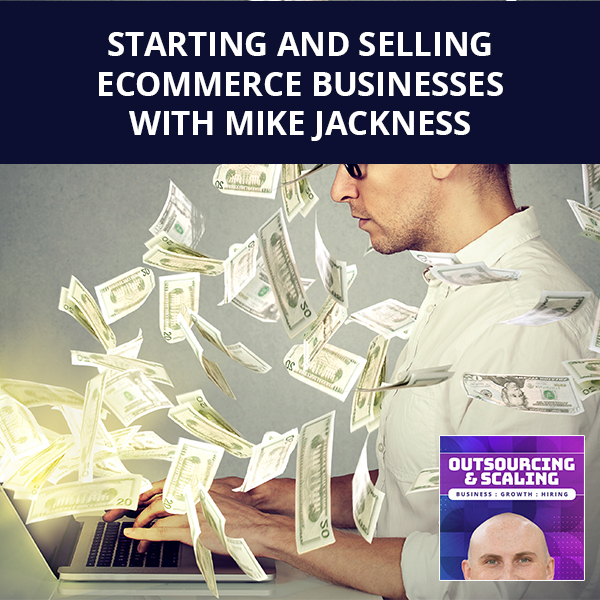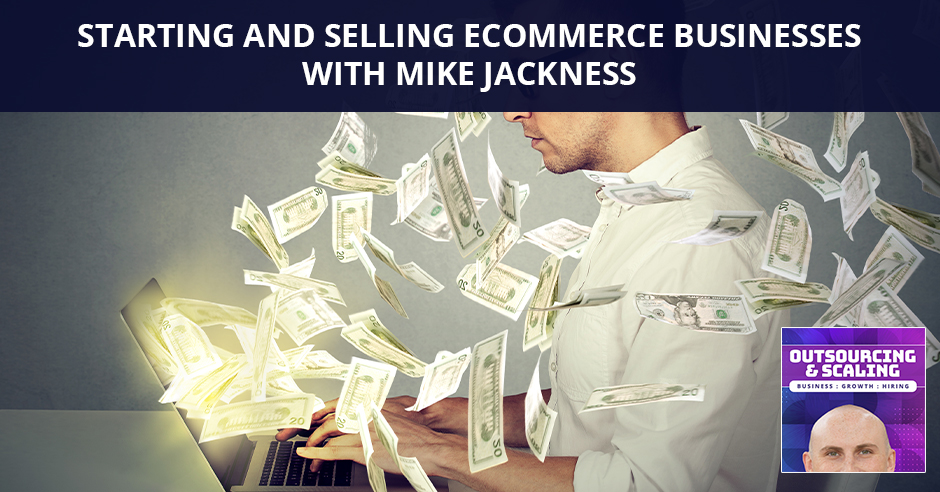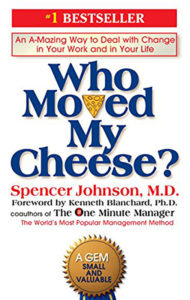


Not putting your business online is a risk not worth taking these days. With the rise of technology comes the growth of the eCommerce business. Yet not many know how to crack this online world. Here to share his expertise about this industry is Mike Jackness of EcomCrew. As a serial entrepreneur, Mike has been starting and selling eCommerce businesses and documenting the entire process. He reveals his mentality in building eCommerce business, how he goes about doing it, and his take on the long-term versus the short-term. Building micro-influencers along the way, Mike also talks about brand building that will help you become known as the expert in the space.
—
Listen to the podcast here:
[smart_track_player url=”https://www.podetize.com/statsapi/www.podetize.com/wp-content/uploads/fileuploads/11-5b145ef137b51b3d1af0633e9305c43d/10/2019/2eaf640a3eab390e43ed590956aeefad.mp3″ title=”Starting And Selling eCommerce Businesses with Mike Jackness” artist=”Nathan Hirsch” image=”https://freeup.net/wp-content/uploads/2019/04/OAS.png” ]
Download the audio file here.
Starting And Selling eCommerce Businesses with Mike Jackness
My guest, you probably know from EcomCrew, is Mike Jackness. Mike, how are you doing?
Doing pretty good.
For those who don’t know, Mike is a serial entrepreneur who started his first company out of high school. Mike has been starting and selling eCommerce businesses and documenting the entire process along the way via the EcomCrew podcast and blog. Mike has built multiple seven-figure eCommerce brands and had two seven-figure eCommerce exits. We had Joe Valley from Quiet Light Brokerage. He was talking about you starting businesses and selling them. Let’s take a gigantic step back. What were you like growing up? Were you a straight-A student? Were you a rebel? Did you always know that you want to be an entrepreneur?
I was not a straight-A student. I was about as opposite of that as you could be. I knew that I was not getting into college, at least not one that would be reputable. I did not know that you could pay to get into college. If I knew better, if I had rich parents, they could have gotten me in these schools. Maybe I would have had a chance. The reality for me was that was not going to happen and I do not have rich parents. By process of elimination, it forced me into being an entrepreneur. My first business, I started it right out of high school. I was doing computer consulting. I was a geeky, introverted, awkward kid. I think a lot of kids are awkward, I’ve come to realize.
You grow out of that eventually. I was definitely socially awkward and way different than I am today. Luckily, I was at the right place at the right time. I was a kid of the ‘80s and ‘90s. Computers were becoming a thing at that point. Desktop computers were in the home. I was there through that evolution and learned along the way. Kids learn things quickly and that became something that was valuable in the marketplace. My first company was doing consulting for home computer users. That led me into doing networking for corporate life. That’s how the whole thing started.
How did you get into eCommerce? What year was it?
That’s a longer story. That’s the problem when you get older, the story gets longer. Before getting into eCommerce, my previous business was doing affiliate marketing, SCL content marketing and things with this nature. I had built a substantial company doing that. It was in the online poker space. Eventually, I wanted to get into something that didn’t have the negative connotations of that. I semi-retired at that time. During that time, I was buying and selling high profile keyword domains. One of those domains was Treadmill.com, amongst a whole bunch of others. CuttingBoard.com was another business we started and other non-eCommerce ones like GraphicDesign.com, OnlineDegree.com and WebsiteHosting.com.
I did not know at that time but the purchase of Treadmill.com was what got us into eCommerce. We already owned the domain. We had the domain and were operating it as an affiliate website to start with. I decided one day that I didn’t want to be an affiliate marketer anymore in that capacity, the way that I was doing it. We woke up one morning and set our minds to starting an eCommerce site with no expectations, knowledge or anything about how to do it. That is my personality. I don’t let not knowing how to do something stop me. I did some google searching on the best platforms for eCommerce, settled on big commerce at the time, and figured it out. Because I have a technology background, it was a lot easier than it would be for the average person to go do that. That’s how the whole thing began.
When you get older, the story gets longer.
For a lot of people now, it’s Amazon first and then they branch into something else. What’s your mentality in building an eCommerce business? I know that you are doing it over and over again. Are you starting off Amazon and then getting there? Are you leaving Amazon out? How are you going about doing it?
There was an evolution for our business. I didn’t even know what Amazon was other than I bought books off of it when I started eCommerce in 2013 or 2014. It’s been this mass push towards me doing Amazon because it is easier. There are many eyeballs there. The amount of traffic and everything that’s there is hard to ignore. It’s also hard to ignore that things change. The landscape has been changing dramatically at Amazon. The window is closing fairly rapidly from the way that we used to do business selling things on Amazon where you could launch any widget and be successful seemingly easily to where it is now. You better have some leg up to be able to do that outside traffic, a brand, etc. to where I think is heading towards this race to the bottom. Chinese sellers are coming in and other people who are working out of their mom’s basement, who are willing to work for less money.
People that are selling on the platform are losing money and do not even realize it because they do not understand all the financials behind it. They got into something that was not working well, then they try to dump inventory. I see this happening more and more. Negative reviews, false IP complaints and all of these nasty tactics that are happening. I think about where the puck is going not where it is. One of my favorite books to talk about is a book called Who Moved My Cheese? and I think that it’s applicable here. Even though we’ve sold one of our eCommerce businesses, we’re still multimillion Amazon sellers. I’m happy of what we have built there. The income is incredible. To think that we could continue to do this the same way we are doing it perpetually into the future is also crazy.
Are you more of a long-term thinker where you are setting up the business itself right from the beginning? You’re aware that things can change over time so you’re maximizing on what’s happening now in the short-term while also adjusting over time. What would you say your business mentality is in the long-term versus short-term?
The long-term for us, the way we’re shifting our business is to be thinking about how you can build a defensible business. In 2025, what is the landscape going to look like at that point? That’s going to be someone who has some other traffic, attention, prowess or notoriety away from products. It’s funny how things come full circle in life sometimes. We’re getting back to creating content sites, blogs, YouTube channels and things that allow us to be subject matter experts. EcomCrew is a perfect example of this. ColorIt was a good example. We sold that business. Something where you have attention, where people think of you as the guy or girl for that space. You don’t have to be the only one because there’s no niche. There’s a lot of crowded spaces out there. Even in a crowded space like eCommerce or coloring, we were able to pull this off.
Tactical.com, for instance, that’s one of our sites. We’re working on building that as a blog, content network and informational site around all sorts of things. One of those things would be product. We have our own products that we’re launching. We have this unfair advantage of lots of traffic, searches, gaining notoriety, presence and space. We’re working on that and a bunch of other niches as well. I think that’s the future. If you think how things have been progressing over time, less eyeballs are watching TV and more eyeballs are watching YouTube. Less eyeballs are reading the newspaper or print media and more eyeballs are reading online blogs.
There’s a huge space for micro-influencers to continue to grow. It’s already a big thing but I see the trend of that continuing to grow. I also see the trend of eCommerce to continue to grow because people aren’t going to go start shopping at the mall again. There’s a convergence of these two things. Selling on Amazon is not the attention. You don’t own anything there. They have the attention and the traffic. You’re just one of many sellers. I was using an analogy of when I first start selling on Amazon, I thought I was the only child. Now, I feel like I’m in this octuplet family. I think that’s going to continue to progress that way.
Talk to me about building a brand, becoming that micro-influencer. If someone’s reading right now and they have a product idea, they’ve got a product to market and they want to be known as the expert in the space, what tips and advice do you have for them?

You need to concentrate on that stuff and not the product. You need to have the influence, traffic and exposure first. This is a plan that we’re able to execute because we already have an existing business that’s bringing in income. Our approach is different than the guy that might be looking to quit his job tomorrow or has already quit on the job and has to put food on the table. I’m respectful of different people’s socioeconomic status because we all have to come somewhere. For us, we have the time to invest. Time is the biggest enemy to success in this niche because you need 18 to 24 months to do it right. You can’t shortcut it. You’ve got to be out there.
EcomCrew is a great example of this where we put out 150-plus podcast episodes and wrote hundreds of articles that were thousands of words each before thinking about monetizing anything. It wasn’t even the initial approach. It was, “Let’s give back to the community, become a well-known respected person in the community. We’ll worry about the rest later.” That’s the same thing that has to apply here. If you’re looking to sell sporting equipment, take the time to write a lot of content and become an expert in that field. Hire people that are experts about how to train on certain things for that particular sport. Let’s say its tennis. The way that I would approach it would be, “How to hit a forehand and a backhand.” Have YouTube content and blog about this. Have infographics built into the blog so it’s the best content that’s ever written about that subject.
Over time, you will get notoriety. Other tennis coaches will link to you and talk about you. Other tennis players mostly are talking about you. Other respected publications will start talking about you and linking to you. This is all a natural progression. You’re putting out legitimately the best content ever written about this subject on the internet, over above everybody else and leapfrogging them. It will happen but it takes time. Once you’ve crossed that bridge and you have the attention and the traffic, selling them anything is easy. As long as you don’t screw it up, you’ll continue to sell them more stuff in the future.
Can you talk about selling your business? I think a lot of people look at their businesses as their baby. It’s a little hard to get rid of. Other people want to do it but they’re not able to set up their business in a way that is sellable. What was that process like? What did you learn? Give us a little bit on the inside.
The thing that led me to sell was a lot of the stuff I was talking about, like how things are changing on Amazon. When we first started doing this, your business model was one thing. The model started shifting and I felt like the rug underneath us was shifting at the same time. The risk to reward calculation for us of how deep we were into Amazon had changed. That’s what led us to make that decision. We had $1.3 million in inventory. I looked at the delta between the best-case scenario in our business to the worst-case scenario. That gap was widening. The worst-case scenario was Amazon shut our account down at $1.3 million in inventory with about $800,000 or $700,000 in debt against the inventory. It’s an awful thing to think about. The best-case scenario was I can sell a part of this business, which is what we ended up doing, and have a seven-figure cash out to pay off any debt and put a bunch of money in the bank. The gap for that was widening and getting bigger. It’s hard not to think about that.
Every day you hear these stories about things that could happen. That was the reason that we went to sell. The process to sell was relatively easy for us because we have been working on some of the stuff in the coloring space. We were legitimately one of the top players in the adult coloring space. Anybody that was into that hobby knew who ColorIt was. Whether they were a customer or not, they probably knew who we were. We worked hard on all the branding and writing lots of great content. We were coming up number one or on the first page on all these search things on Google. We also worked on our YouTube channel. We had a big email list and a big subscriber list on Messenger. We had a differentiated product in the marketplace. When we went to sell, our business stood out. It was easy to sell. From the time that we listed it, to the time that we had it under was a matter of a couple of weeks. We had multiple cash offers. The whole thing happened relatively quickly once I set my mind to do it. We got lucky with the buyers. These guys have been amazing to work with. I hope they feel the same about me. The rest has been the rearview mirror at this point.
You’re a logical person. You’re walking us through the pros and cons. Was there any emotional element of getting rid of a company you put a lot of effort into or did you look at it more like an asset that you’re getting rid of?
There was zero emotional element to me in terms of getting rid of the brand. The emotional part for me was going through due diligence and having to let our team know what was going on. I’m making sure everybody was treated fairly and right and came out of this in a good way like we were. Multiple years of what would happen normally were happening in a month or two. You’re going through due diligence, large amounts of money are going back and forth, you’re transferring assets around and all these different things. That was a pretty stressful time. That was the emotional part for me.
People that are selling on Amazon are losing money and don’t even realize it because they do not understand all the financials behind it.
I don’t have any emotional attachment to the brand, which I think is part of the problem with our business up to this point. I’m definitely going to focus a lot more moving forward. The next things we’re working on are things that I have more of a personal interest in. The downside to that is that I will definitely have more of an emotional attachment to the business in the future when we go to sell. The upside is it will be a much better business. It will be something that I don’t have to rely on someone else help create content and be the face.
I knew nothing about coloring. It was a struggle. I had to get someone else to write the content, the film content, to be the face of the brand, to do ColorIt live or Facebook Live, to be the person writing the emails and the voice behind the emails. All these different kinds of things, you’re relying on someone else. It’s not horrible. The part that makes it more difficult is that business is never a straight line up. There’s this jagged line of growth. When things are not going great, it’s better to be more personally invested and passionate about what you’re doing than selling something simply to make money. Those are the two trains of thought. I’m not saying that one is right or the other. For me moving forward, the way to go is to have something that I would use myself.
Let’s talk about your team. I know you and I have different hiring mentalities. I have 50% remote VA’s. You’ve got an office in the Philippines. You might have some US people too. Talk to me about how you have been able to structure teams around your different businesses.
I’ve owned a lot of business in my life. The biggest company we had in terms of employees, we had 66 employees at one time. That was in the online poker affiliate marketing space. I’ve had smaller companies along the lines. I have been through all of these different things. Everyone works differently. My way of managing a company or managing people is different than yours or anyone else’s. You should do what’s best for you. I’m not a good communicator. It’s difficult for me to use Basecamp, email or some type of tool used to constantly communicate and keep my staff apprised of all the things they should be. The right way here is that they’re entitled to be right. If you want to run a good company, you need to do the stuff right. As we were starting this business, I wanted everyone in one spot because I know that would make that easier. I can have one manager there, I can go to one place and see them all at one time. I do go visit them at least once a year. That makes those types of things easier for me. Having everyone in one office, the sum of the parts is grater than individual pieces a lot of times.
What we end up doing was we hired a couple of different VA’s. They were in different places to start with in hopes of finding a good manager, someone who could eventually lead the team. There was one that stood out above the rest. Her name was Mia. I talked to her, “You’ve done an amazing job over the last year. I want to start an office there. Would you be interested in taking the lead to do that and help me do that? It’s going to come with a great raise and all of these different things.” She said yes. I originally tasked her with finding a co-working space type office that could grow and shrink with our demand and help me interview the initial employees that we would hire. I flew there to meet with her. We found the office that we liked and we hired the first few people. Since then, she’s hired about sixteen or seventeen people and had to let go about four of them. It’s revolutionized the way that we do business.
eCommerce is a low margin business. It’s a tough business. It’s not like affiliate marketing where there’s money flying in and there isn’t any expenses or inventory to deal with. eCommerce runs anywhere from 5% to 20% net margins. We run it 12% to 15% ourselves. If we were to hire the same thirteen people in the United States, we would probably be a net breakeven company. That difference in payroll would be the difference for us in terms of profitability. We’d have to have less people as the end result. We would do less and probably have a smaller company. We’d find a way to make money, but that staff has been able to do for us. There is leverage people power. It’s been amazing for our company. The things that they get done there are as high of a level as anything that’s getting done in our US office.
What’s your hiring mentality and how does that change over time? What do you look for when you’re hiring someone?
The thing that we struggle with is getting enough people because our bar is high. This was a conversation I was having with our manager. She’s like, “Do we need to lower our expectations a little bit to get these people that we want to hire?” There are all these cliché sayings that you’re only as strong as your weakest link. People will work down the lowest common denominator. A lot of these cliché sayings are there for a reason. When someone else in the office that’s working on a high level sees someone else operating a little bit less of a level, they’ll probably come down to that. It’s like, “I can do that too.” We’ve got to be careful when we push for people that are independent thinkers, that can work on their own better, willing to take on responsibility and don’t need us to babysit them.

The culture of stuff, that’s also hard to find in the Philippines. After spending quite a bit of time there, I’ve come to realize that it’s a shyer culture. They’re not used to working in an environment where they can think freely. They’re used to working in an environment where someone is standing over their shoulder, snapping a whip and saying, “If you don’t answer one more phone call per hour, we’re going to fire you.” It’s been difficult retraining people to operate differently but it’s worked well for us. It’s taken some time. Now that we have a bigger team, the new people that come in are able to make that transition quicker because there are more people they’re around that they can see it with. It’s definitely a struggle, there’s no doubt about it.
You travel a lot. You go to a lot of conferences. What are some of your eCommerce or marketing conferences? Where are your favorite places to travel?
Favorite conferences are going to be eCommerceFuel Live. It’s a sentimental thing because it’s the first one that I had ever gone to. It was the first community I ever joined in eCommerce. It was the first conference that I ever spoke at. These were the first people that I’ve met in person. I have the longest-term relationship with the people with that community. A lot of these conferences aren’t necessarily about what you learn at the conferences but who you meet. It’s getting there, spending time with like-minded entrepreneurs, commiserating and talking about things that happened in our lives so we can all feel we’re not alone.
In these conversations, you’re going to get some tidbit about their businesses that you would never hear someone speak about on stage. It’s the people who are the most important part. With that in mind, Seller Summit is another one of these great conferences to go to. These conferences that are in the sub-200 attendees are the ones that are my favorite to go to. I go to something like Retail Global which I spoke at. There were good topics and everything there, but it gets to be the point where, because I am still relatively introverted, it’s hard for me to start walking in the halls and introduce myself to random people that I don’t feel I have some connection with. At these other conferences, that’s a lot easier. Those are my two favorites.
Where can people find out more about you? What are you most excited about?
EcomCrew is the place to find me. There are 250 podcasts and blogs to consume. Support@EcomCrew.com if you want to shoot me an email. I’m excited to work on non-business stuff. We’ve been talking a lot about focusing on things of that nature. We’re spending a lot of time in with this philosophy of less is more and focusing on getting every t crossed and i dotted in our business the way that I would like. After multiple years of 100% plus growth every year, it gets intense. We’re taking a little bit of a breather.
From a personal standpoint, we’re going to be doing a lot more traveling this year. Not just work travel but some personal travel. Traveling around the country in an RV and doing some EcomCrew road trip stuff along the way with that. Also, some international travel that I have been wanting to do for a long time. One of those things is going to the Australian Open. Those are the things that I’m looking forward to.
Mike, thanks so much for joining us. Congrats again on the sale. I look forward to seeing you at some other conferences.
Thanks, I appreciate it.
Important Links:
- EcomCrew
- Joe Valley – previous episode
- Treadmill.com
- CuttingBoard.com
- GraphicDesign.com
- OnlineDegree.com
- WebsiteHosting.com
- Who Moved My Cheese?
- ColorIt
- Tactical.com
- eCommerceFuel Live
- Seller Summit
- Retail Global
- Support@EcomCrew.com
About Mike Jackness
 Mike Jackness is a serial entrepreneur who started his first company out of high school. Most recently, since 2014, Mike has been starting and selling eCommerce businesses and documenting the entire process along the way via the EcomCrew podcast and blog.
Mike Jackness is a serial entrepreneur who started his first company out of high school. Most recently, since 2014, Mike has been starting and selling eCommerce businesses and documenting the entire process along the way via the EcomCrew podcast and blog.
Mike has built multiple 7-figure eCommerce brands and had 2 7-figure eCommerce exits.
